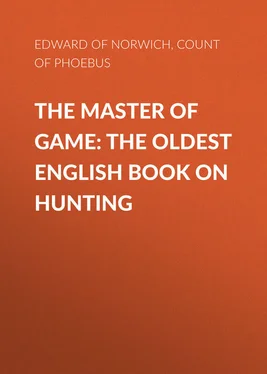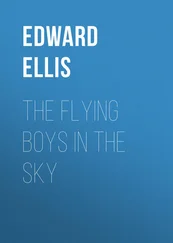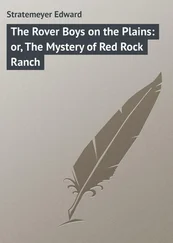Edward Array - The Master of Game - The Oldest English Book on Hunting
Здесь есть возможность читать онлайн «Edward Array - The Master of Game - The Oldest English Book on Hunting» — ознакомительный отрывок электронной книги совершенно бесплатно, а после прочтения отрывка купить полную версию. В некоторых случаях можно слушать аудио, скачать через торрент в формате fb2 и присутствует краткое содержание. Жанр: Хобби и ремесла, foreign_antique, foreign_prose, на английском языке. Описание произведения, (предисловие) а так же отзывы посетителей доступны на портале библиотеки ЛибКат.
- Название:The Master of Game: The Oldest English Book on Hunting
- Автор:
- Жанр:
- Год:неизвестен
- ISBN:нет данных
- Рейтинг книги:5 / 5. Голосов: 1
-
Избранное:Добавить в избранное
- Отзывы:
-
Ваша оценка:
- 100
- 1
- 2
- 3
- 4
- 5
The Master of Game: The Oldest English Book on Hunting: краткое содержание, описание и аннотация
Предлагаем к чтению аннотацию, описание, краткое содержание или предисловие (зависит от того, что написал сам автор книги «The Master of Game: The Oldest English Book on Hunting»). Если вы не нашли необходимую информацию о книге — напишите в комментариях, мы постараемся отыскать её.
The Master of Game: The Oldest English Book on Hunting — читать онлайн ознакомительный отрывок
Ниже представлен текст книги, разбитый по страницам. Система сохранения места последней прочитанной страницы, позволяет с удобством читать онлайн бесплатно книгу «The Master of Game: The Oldest English Book on Hunting», без необходимости каждый раз заново искать на чём Вы остановились. Поставьте закладку, и сможете в любой момент перейти на страницу, на которой закончили чтение.
Интервал:
Закладка:
Wherefore I say that such an hunter is not idle, he can have no evil thoughts, nor can he do evil works, wherefore he must go into paradise. 10 10 Gaston de Foix in the French parent work puts it even more forcefully; he says: "tout droit en paradis." See Lavallée's ed. 1854.
For by many other reasons which are too long to write can I prove these things, but it sufficeth that every man that hath good sense knoweth well that I speak the real truth.
Now shall I prove how hunters live in this world more joyfully than any other men. For when the hunter riseth in the morning, and he sees a sweet and fair morn and clear weather and bright, and he heareth the song of the small birds, the which sing so sweetly with great melody and full of love, each in it's own language in the best wise that it can according that it learneth of it's own kind. And when the sun is arisen, he shall see fresh dew upon the small twigs and grasses, and the sun by his virtue shall make them shine. And that is great joy and liking to the hunter's heart. After when he shall go to his quest or searching, he shall see or meet anon with the hart without great seeking, and shall harbour 11 11 Trace the deer to its lair.
him well and readily within a little compass. It is great joy and liking to the hunter. And after when he shall come to the assembly or gathering, and he shall report before the Lord and his company that which he hath seen with his eyes, or by scantilon (measure) of the trace (slot) which he ought always of right to take, or by the fumes 12 12 See Appendix: Excrements.
(excrements) that he shall put in his horn or in his lap. And every man shall say: Lo, here is a great hart and a deer of high meating or pasturing; go we and move him; the which things I shall declare hereafter, then can one say that the hunter has great joy. When he beginneth to hunt and he hath hunted but a little and he shall hear or see the hart start before him and shall well know that it is the right one, and his hounds that shall this day be finders, shall come to the lair (bed), or to the fues (track), and shall there be uncoupled without any be left coupled, and they shall all run well and hunt, then hath the hunter great joy and great pleasure. Afterwards he leapeth on horseback, if he be of that estate, and else on foot with great haste to follow his hounds. And in case peradventure the hounds shall have gone far from where he uncoupled, he seeketh some advantage to get in front of his hounds. And then shall he see the hart pass before him, and shall holloa and rout mightily, and he shall see which hound come in the van-chase, and in the middle, and which are parfitours, 13 13 See Appendix: Relays.
according to the order in which they shall come. And when all the hounds have passed before him then shall he ride after them and shall rout and blow as loud as he may with great joy and great pleasure, and I assure you he thinketh of no other sin or of no other evil. And when the hart be overcome and shall be at bay he shall have pleasure. And after, when the hart is spayed 14 14 Despatched with a sword or knife. See Appendix: Spay.
and dead, he undoeth him and maketh his curée and enquireth or rewardeth his hounds, and so he shall have great pleasure, and when he cometh home he cometh joyfully, for his lord hath given him to drink of his good wine at the curée, and when he has come home he shall doff his clothes and his shoes and his hose, and he shall wash his thighs and his legs, and peradventure all his body. And in the meanwhile he shall order well his supper, with wortes (roots) and of the neck of the hart and of other good meats, and good wine or ale . And when he hath well eaten and drunk he shall be glad and well, and well at his ease. And then shall he take the air in the evening of the night, for the great heat that he hath had. And then he shall go and drink and lie in his bed in fair fresh clothes, and shall sleep well and steadfastly all the night without any evil thoughts of any sins, wherefore I say that hunters go into Paradise when they die, and live in this world more joyfully than any other men. Yet I will prove to you how hunters live longer than any other men, for as Hippocras the doctor telleth: "full repletion of meat slayeth more men than any sword or knife." They eat and drink less than any other men of this world, for in the morning at the assembly they eat a little, and if they eat well at supper, they will by the morning have corrected their nature, for then they have eaten but little, and their nature will not be prevented from doing her digestion, whereby no wicked humours or superfluities may be engendered. And always, when a man is sick, men diet him and give him to drink water made of sugar and tysane and of such things for two or three days to put down evil humours and his superfluities, and also make him void (purge). But for a hunter one need not do so, for he may have no repletion on account of the little meat, and by the travail that he hath. And, supposing that which can not be, and that he were full of wicked humours, yet men know well that the best way to terminate sickness that can be is to sweat. And when the hunters do their office on horseback or on foot they sweat often, then if they have any evil in them, it must (come) away in the sweating; so that he keep from cold after the heat. Therefore it seemeth to me I have proved enough. Leeches ordain for a sick man little meat and sweating for the terminating and healing of all things. And since hunters eat little and sweat always, they should live long and in health. Men desire in this world to live long in health and in joy, and after death the health of the soul. And hunters have all these things. Therefore be ye all hunters and ye shall do as wise men. Wherefore I counsel to all manner of folk of what estate or condition that they be, that they love hounds and hunting and the pleasure of hunting beasts of one kind or another, or hawking. For to be idle and to have no pleasure in either hounds or hawks is no good token. For as saith in his book Phœbus the Earl of Foix that noble hunter , he saw never a good man that had not pleasure in some of these things, were he ever so great and rich. For if he had need to go to war he would not know what war is, for he would not be accustomed to travail, and so another man would have to do that which he should. For men say in old saws: "The lord is worth what his lands are worth." 15 15 Gaston de Foix says: "Tant vaut seigneur tant vaut sa gent et sa terre," p. 9.
And also he saith in the aforesaid book , that he never saw a man that loved the work and pleasure of hounds and hawks, that had not many good qualities in him; for that comes to him of great nobleness and gentleness of heart of whatever estate the man may be, whether he be a great lord, or a little one, or a poor man or a rich one.
CHAPTER II
OF THE HARE AND OF HER NATURE
The hare is a common beast enough, and therefore I need not tell of her making, for there be few men that have not seen some of them. They live on corn, and on weeds growing on waste land, on leaves, on herbs, on the bark of trees, on grapes and on many other fruits. The hare is a good little beast, and much good sport and liking is the hunting of her, more than that of any other beast that any man knoweth , if he 16 16 The hare was frequently spoken of in two genders in the same sentence, for it was an old belief that the hare was at one time male, and at another female. See Appendix: Hare.
were not so little. And that for five reasons: the one is, for her hunting lasteth all the year as with running hounds without any sparing, and this is not with all the other beasts. And also men may hunt at her both in the morning and in the evening. In the eventide, when they be relieved, 17 17 Means here: when the hare has arisen from her form to go to her feeding. Fr. relever . G. de F. explains, p. 42: un lievre se reliève pour aler à son vianders . Relief, which denoted the act of arising and going to feed, became afterwards the term for the feeding itself. "A hare hath greater scent and is more eagerly hunted when she relieves on green corn" ( Comp. Sportsman , p. 86). It possibly was used later to denote the excrements of a hare; thus Blome (1686) p. 92, says: "A huntsman may judge by the relief and feed of the hare what she is."
and in the morning, when they sit in form. And of all other beasts it is not so, for if it rain in the morning your journey is lost, and of the hare it is not so. That other [reason] is to seek the hare; it is a well fair thing, especially who so hunteth her rightfully, for hounds must need find her by mastery and quest point by point, and undo all that she hath done all the night of her walking, and of her pasture unto the time that they start her. And it is a fair thing when the hounds are good and can well find her. And the hare shall go sometimes from her sitting to her pasture half a mile or more, specially in open country. And when she is started it is a fair thing. And then it is a fair thing to slay her with strength of hounds, for she runneth long and gynnously (cunningly). A hare shall last well four miles or more or less, if she be an old male hare. And therefore the hunting of the hare is good, for it lasteth all the year, as I have said. And the seeking is a well fair thing, and the chasing of the hare is a well fair thing, and the slaying of him with strength (of hounds) is a fair thing, for it requireth great mastery on account of her cunning. When a hare ariseth out of her form to go to her pasture or return again to her seat, she commonly goes by one way, and as she goes she will not suffer any twig or grass to touch her, for she will sooner break it with her teeth and make her way. Sometime she sitteth a mile or more from her pasturing, and sometimes near her pasture. But when she sitteth near it, yet she may have been the amount of half a mile or more from there where she hath pastured, and then she ruseth again from her pasture. And whether she go to sit near or far from her pasture she goes so gynnously (cunningly) and wilily that there is no man in this world that would say that any hound could unravel that which she has done, or that could find her. For she will go a bow shot or more by one way, and ruse again by another, and then she shall take her way by another side, and the same she shall do ten, twelve, or twenty times, from thence she will come into some hedge or strength (thicket), and shall make semblance to abide there, and then will make cross roads ten or twelve times, and will make her ruses, and thence she will take some false path, and shall go thence a great way, and such semblance she will make many times before she goeth to her seat.
Интервал:
Закладка:
Похожие книги на «The Master of Game: The Oldest English Book on Hunting»
Представляем Вашему вниманию похожие книги на «The Master of Game: The Oldest English Book on Hunting» списком для выбора. Мы отобрали схожую по названию и смыслу литературу в надежде предоставить читателям больше вариантов отыскать новые, интересные, ещё непрочитанные произведения.
Обсуждение, отзывы о книге «The Master of Game: The Oldest English Book on Hunting» и просто собственные мнения читателей. Оставьте ваши комментарии, напишите, что Вы думаете о произведении, его смысле или главных героях. Укажите что конкретно понравилось, а что нет, и почему Вы так считаете.












